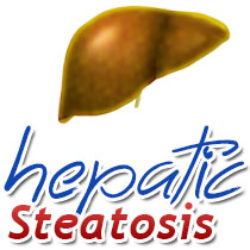The liver is one of the most complex of the body’s vital organs. It fulfills numerous important metabolic functions, and is complicated in its operations; as a result, it is subject to damage by a wide variety of illnesses and other factors. As well as having many causes, liver damage also has varying manifestations and symptoms, and at worst, when it leads to liver failure, can be fatal.
Symptoms
Very often, minor liver damage occurs without any symptoms at all. When symptoms do manifest, they often indicate that the damage has progressed to a relatively severe stage. Among the symptoms of liver damage are itching, overall body pain, nausea, loss of appetite, enlarged liver (resulting in localized pain over the upper right side of the torso), inflammation of the abdomen, and jaundice.
Other indications that you may not perceive yourself include elevated liver enzymes (detectable through a blood test), and fatty deposits, growths and tumors, or fibrous scarring of the liver (detectable through diagnostic imaging such as an ultrasound, CT scan, or MRI).
Causes
Liver damage can be caused by excessive alcohol consumption, obesity, various drugs and medications, and diseases of the liver ranging from the relatively mild and benign (such as fatty liver disease or hemangioma liver) to the serious and life-
Alcohol, Alcoholism, and Liver Damage
Alcohol abuse is a factor in serious liver damage probably more often than any other single cause. Liver diseases such as fatty liver and cirrhosis are divided by physicians into alcoholic and non-
Even when the cause is something other than alcohol, though, an alcohol-
Acetominophen (Tylenol)
There is some evidence of liver damage resulting from excessive intake of the pain reliever acetominophen (the active ingredient in Tylenol). There is also some evidence, although it is not unconflicted, of liver damage resulting from non-
In patients with healthy livers, studies have shown that acetominophen can produce elevated liver enzymes, but the enzymes returned to normal when the drug ceased to be taken, producing no long-
Is Liver Damage Reversible?
Whether liver damage is reversible depends on how progressed the liver disease becomes and how much and in what form the damage accrues.
Mild liver conditions such as fatty liver can often be reversed (causing the fatty
deposits to shrink and disappear) with changes in lifestyle, depending on the underlying cause, e.g. cessation of drinking if the cause is alcoholic or diet and exercise changes if the cause is obesity.
Serious liver damage such as scarring, fibrosis, and cirrhosis is however irreversible if you use traditional medications. The progression of the disease may be arrested with lifestyle changes in many cases, but any damage that has already occurred is often irreparable. Severe liver damage leading to liver failure can call for a liver transplant as the only way to restore liver functioning long term.
